
Neogastropoda is an order of sea snails, both freshwater and marine gastropod molluscs.

The order Cephalaspidea, also known as the headshield slugs and bubble snails, is a major taxon of sea slugs and bubble snails, marine gastropod mollusks within the larger clade Euopisthobranchia. Bubble shells is another common name for these families of marine gastropods, some of which have thin bubble-like shells. This clade contains more than 600 species.

Pulmonata or pulmonates is an informal group of snails and slugs characterized by the ability to breathe air, by virtue of having a pallial lung instead of a gill, or gills. The group includes many land and freshwater families, and several marine families.

Venerida is an order of mostly saltwater but also some freshwater bivalve molluscs. This order includes many familiar groups such as many clams that are valued for food and a number of freshwater bivalves.
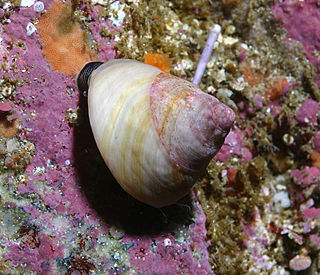
Trochoidea is a superfamily of small to very large vetigastropod sea snails with gills and an operculum. Species within this superfamily have nacre as the inner shell layer. The families within this superfamily include the Trochidae, the top snails. This superfamily is the largest vetigastropodan superfamily, containing more than 2,000 species.
The taxonomy of the Gastropoda as it was revised in 2005 by Philippe Bouchet and Jean-Pierre Rocroi is a system for the scientific classification of gastropod mollusks. The paper setting out this taxonomy was published in the journal Malacologia. The system encompasses both living and extinct groups, as well as some fossils whose classification as gastropods is uncertain.

Pyramidelloidea is a superfamily of mostly very small sea snails, marine gastropod mollusks and micromollusks within the clade Panpulmonata.

Vetigastropoda is a major taxonomic group of sea snails, marine gastropod mollusks that form a very ancient lineage. Taxonomically the Vetigastropoda are sometimes treated as an order, although they are treated as an unranked clade in Bouchet and Rocroi, 2005.

Lower Heterobranchia, also known as the Allogastropoda, is a group of rather specialized, highly evolved sea slugs and sea snails, within the subclass Heterobranchia.

Sigmurethra is a taxonomic category of air-breathing land snails and slugs, terrestrial pulmonate gastropod molluscs. This is an informal group which includes most land snails and slugs.
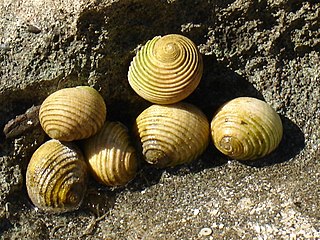
Cycloneritida is an order of land snails, freshwater snails, and sea snails.
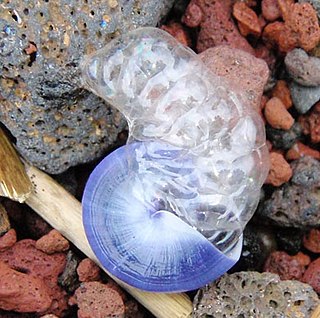
The Ptenoglossa is an informal taxonomic group of sea snails. This group was considered paraphyletic or polyphyletic by Ponder and Lindberg (1997) in their classification of gastropod molluscs.

The Limacoidei is a taxonomic infraorder of air-breathing land snails, semislugs and slugs, terrestrial pulmonate gastropod molluscs in the suborder Helicina

The Doridina, common name dorid nudibranchs, are a taxonomic suborder of sea snails or slugs, marine gastropod molluscs in the order Nudibranchia. Bouchet & Rocroi (2005) rejected the name Anthobranchia on the grounds that it also included Onchidium at the time of original publication. Doridina is equivalent and used in the latest classification.

The Dexiarchia are a suborder of sea slugs, shell-less marine gastropod molluscs in the order Nudibranchia. This classification is based on the study by Schrödl et al., published in 2001, who recognized within this clade two clades Pseudoeuctenidiacea and Cladobranchia.
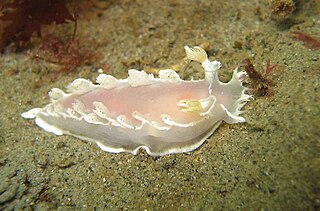
The Cladobranchia are a taxonomic clade of nudibranchs, sea slugs, marine gastropod molluscs in the clade Dexiarchia.
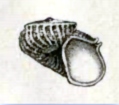
Scissurelloidea is a taxonomic superfamily of minute sea snails, marine gastropod mollusks or micromollusks in the subclass Vetigastropoda.

Hygrophila is a taxonomic superorder of air-breathing freshwater snails, aquatic pulmonate gastropod mollusks within the clade Panpulmonata.
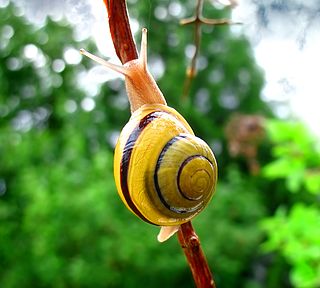
Panpulmonata is a taxonomic clade of snails and slugs in the clade Heterobranchia within the clade Euthyneura.

Eupasserines are passerines in the clade Eupasseres. The clade contains all passerines except the New Zealand wrens (Acanthisitti), to which they are sister.



















